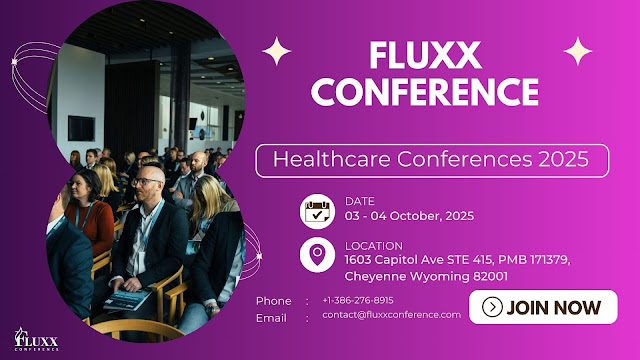Healthcare Conferences 2025 Focus on Mental Health, Equity & Ethics
1. The Rise of Mental Health-Centered Sessions
Gone are the days when healthcare conferences focused solely on pharmaceuticals and medical devices. Today, sessions dive deep into:
Clinician resiliency: Demonstrating evidence-based strategies to prevent burnout.
Patient mental wellness: Integrating behavioral health into primary care.
Systemic interventions: Addressing how hospital workflows and administrative burdens contribute to stress.
These sessions, woven seamlessly into the conference schedule, ensure that every participant—not just mental health professionals—walks away with actionable insights.
2. Elevating Equity: Inclusivity as a Non-Negotiable
Equity is no longer just a buzzword; it's a moral and operational imperative. Modern conference agendas spotlight:
Health disparities—conversations led by clinicians and community leaders highlighting barriers faced by marginalized populations.
Cultural competency training—interactive workshops that enhance understanding of diverse patient backgrounds.
Policy panels—deep-dives into lived experiences and legislative levers that impact equitable access to care.
By intentionally programming sessions across demographics, these events ensure representation—not just on stage but in outcomes.
3. Ethics: Steering Innovation with Responsibility
Breakthrough technologies—like AI in diagnostics and gene-editing tools—come with profound ethical dilemmas. Healthcare conferences are rising to the occasion:
Ethical risk assessments: Workshops guiding attendees on balancing benefit with potential harm.
Informed consent chains: Case studies exploring real-world challenges and best practices.
Futurist forums: Industry leaders debate the implications of predictive analytics, data privacy, and the future of patient autonomy.
Curated segments in the conference agenda demystify ethical complexity and give attendees frameworks for responsible implementation.
4. A Strategic Conference Agenda: Building Momentum
What makes these conferences truly transformative isn’t just the topics, but the structure:
Morning keynotes set the tone—motivational speeches that unite the room around shared values: compassion, equality, and integrity.
Mid-day breakout sessions offer targeted skill-building—from handling moral distress to implementing digital mental health tools.
Evening symposia encourage cross-pollination among healthcare systems, academia, tech start-ups, and patient advocates.
The deliberate pacing in the conference schedule ensures that inspiration drives education, which then cascades into collaboration.
5. Interactive Formats: Learning by Doing
Moving away from lecture halls, today’s top healthcare events incorporate:
Simulation labs: Practice responding to ethical dilemmas in real time.
Design-thinking workshops: Multidisciplinary teams prototype equity-enhancing solutions.
Well-being lounges: Spaces offering mindfulness exercises, peer support, and burnout screening.
These hands-on elements ensure that attendees don’t just listen—they live the lessons.
6. Post-Conference Momentum: From Talk to Transformation
Conferences are only the beginning. Today’s diligent conference agendas include robust post-event initiatives:
Mentorship pairings: Connecting professionals across disciplines to champion projects in mental health, equity, or ethics.
Digital toolkits: Online resources—infographics, policy guides, training modules—that sustain impact long after the event.
Community hubs: Interactive platforms where attendees collaborate, share case studies, and track progress.
Through strategic follow-up, the energy built into the conference schedule transforms into tangible institutional and cultural change.
Last Thoughts
Healthcare is in a watershed moment. The COVID-19 pandemic exposed fault lines—revealing that medicine must encompass mental well-being, fairness, and integrity. As we move forward, healthcare conferences 2025 are recognized as critical ecosystems where experiential insights, policy innovation, and ethical discourse converge. A thoughtfully designed conference agenda and an intentional conference schedule become catalysts—not just for individual learning, but for collective action.
If you're attending such a conference this year, look beyond the brochure. Seek sessions that challenge traditional notions, engage in formats that stretch perspectives, and commit to implementation once the event concludes.




Comments
Post a Comment